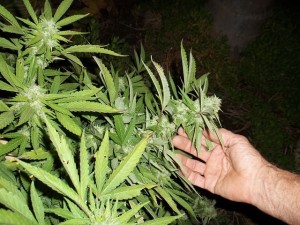Kids in Colorado are not smoking more weed since it has been legalized but their older siblings and parents are, according to a report giving the most comprehensive data yet on the effects of the state’s 2012 recreational marijuana law.
The state released a report on Monday detailing changes in everything from cannabis arrests to tax collections to calls to Poison Control. Surveys given to middle-schoolers and high-schoolers indicate that marijuana use among youth didn’t rise significantly following the 2012 vote.
Among high school students, use went from 23% in 2005 to about 20% in 2004. Similarly, there was no significant change in use by kids younger than 13 in recent years.
According to a national survey, Colorado youth were much more likely than children in other states to use marijuana, both before and after legalization.
About 13 percent of Colorado minors 12-17 in 2014 had used marijuana in the last 30 days, the annual National Survey on Drug Use and Health said. That compared with about 7 percent of minors the same ages nationwide.
Youth marijuana arrests in Colorado rose 5% between 2012 and 2014, from 3,235 to 3m400. The report cited a huge increase in cannabis arrests in schools, which rose by 34% between 2012 and 2014.
While usage of the drug did not increase significantly among children, it jumped quite a bit among adults.
Relying on data from the national drug use survey, Colorado reported that nearly a third of Coloradans aged between 18 and 25 in 2015 had used cannabis in the last 30 days, a rise of about 5% from the year before recreational use was legalized.
The survey showed a similar increase in adults over the age of 26. Past 30-day marijuana use went from 7.6% in 2012 to 12.4% in 2014.
The report comes three years after lawmakers ordered the state Department of Public Safety to start tracking law enforcement activity related to cannabis. A major argument of pro-legalization activists was that regulated markets would result in fewer arrests, making it possible for police to focus on what some considered to be more serious crimes.
The statistics showed a marked drop in arrests, ut that legalization has not solved the racial disparities in enforcement that drug-policy reformers had hoped to end. Colorado police departments have struggled to standardize their marijuana data-collection systems, making more granular conclusions problematic.



